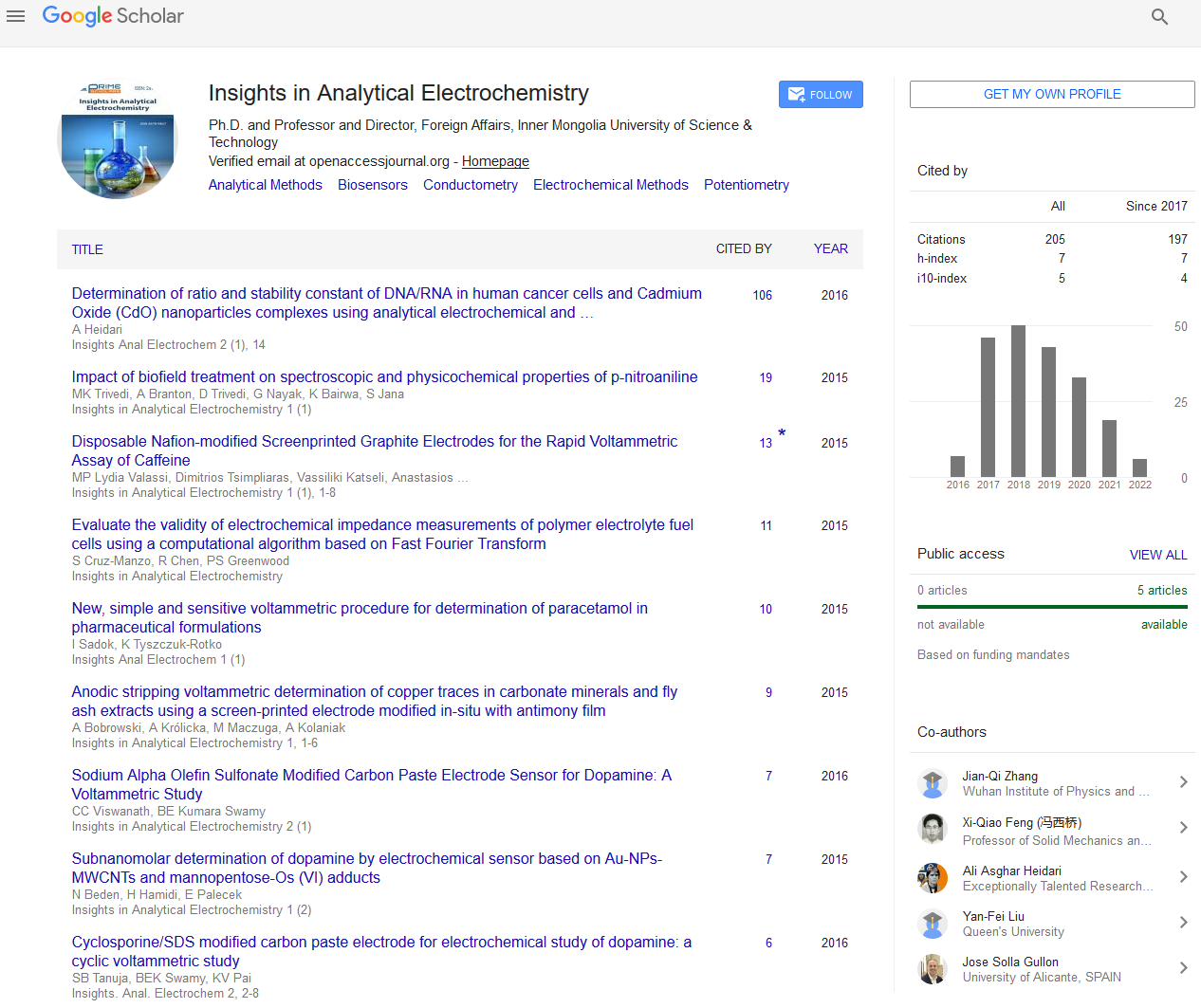Commentary - (2024) Volume 10, Issue 4
The Impact of Pharmacy Education on Future Healthcare Professionals
Marco Antonio*
Department of Chemistry, The Hebrew University of Jerusalem, Israel
*Correspondence:
Marco Antonio,
Department of Chemistry, The Hebrew University of Jerusalem,
Israel,
Email:
Received: 02-Dec-2024, Manuscript No. IPAEI-25-22549;
Editor assigned: 04-Dec-2024, Pre QC No. IPAEI-25-22549 (PQ);
Reviewed: 18-Dec-2024, QC No. IPAEI-25-22549;
Revised: 23-Dec-2024, Manuscript No. IPAEI-25-22549 (R);
Published:
30-Dec-2024, DOI: 10.36648/2470-9867.24.10.35
Description
Pharmacy is a vital and rapidly evolving field that plays a
significant role in healthcare systems worldwide. It involves
the preparation, dispensation, and proper use of medications,
alongside ensuring that patients receive the necessary advice
on managing their health. Pharmacists are highly skilled
professionals who serve as the bridge between doctors,
patients, and the medicines that people rely on for recovery.
The advantages of pharmacy are numerous, ranging from
improving patient care to contributing to the overall well-being
of society. This essay highlights the key benefits of pharmacy
in modern healthcare. Pharmacists play a crucial role in
health promotion by administering vaccinations, conducting
screenings, and providing guidance on disease prevention.
The pharmaceutical industry is a multi-billion-dollar sector
responsible for researching, developing, producing, and
marketing medications. Some of the key components of this
industry include: Pharmaceutical companies invest heavily in
research and development to discover new drugs. The process
involves preclinical testing, clinical trials, and regulatory
approval before a drug reaches the market. Ensuring that
medications meet safety and efficacy standards is a critical
aspect of the industry. Quality control teams monitor
production processes to maintain compliance with international
standards. Pharmaceutical companies collaborate with
healthcare providers and retailers to ensure that medications
are accessible to those in need. Effective marketing strategies
ensure the proper dissemination of information about new
drugs. Despite its importance, the pharmacy profession faces
several challenges, including. The global pharmaceutical
supply chain faces disruptions due to manufacturing issues,
regulatory challenges, and economic factors, leading to
shortages of essential medications. The proliferation of fake
medications poses serious risks to public health. Governments
and pharmaceutical companies continuously work to combat
counterfeit drugs through stringent regulations and tracking
systems. The increasing cost of medications makes access
difficult for many patients. Policymakers and healthcare
providers seek solutions to balance innovation and affordability.
Overuse and misuse of antibiotics have led to the emergence of
antibiotic-resistant bacteria, posing a significant threat to global
health. Pharmacists play a role in promoting the responsible
use of antibiotics. While automation improves efficiency, it also
raises concerns about the displacement of human pharmacists.
However, technology can enhance pharmacy services through
digital health records, tele pharmacy, and artificial intelligence.
The future of pharmacy is evolving with technological
advancements and shifting healthcare needs. Some key trends
shaping the field include. Advancements in pharmacogenomics
allow for tailored drug therapies based on an individualâ??s
genetic makeup, improving treatment efficacy. AI-driven drug
discovery, robotic dispensing systems, and digital consultations
are revolutionizing the way pharmacy services are delivered.
Tele pharmacy services allow pharmacists to remotely counsel
patients and manage prescriptions, improving accessibility in
rural and underserved areas. Efforts to reduce pharmaceutical
waste, eco-friendly drug manufacturing, and green chemistry
initiatives are gaining traction in response to environmental
concerns.
Acknowledgement
None.
Conflict Of Interest
The author's declared that they have no conflict of interest.
Citation: Antonio M (2024) The Impact of Pharmacy Education on Future Healthcare Professionals. Insights Anal Electrochem. 10:35.
Copyright: © 2024 Antonio M. This is an open-access article distributed under the terms of the Creative Commons Attribution License, which permits unrestricted use, distribution, and reproduction in any medium, provided the original author and source are credited.

